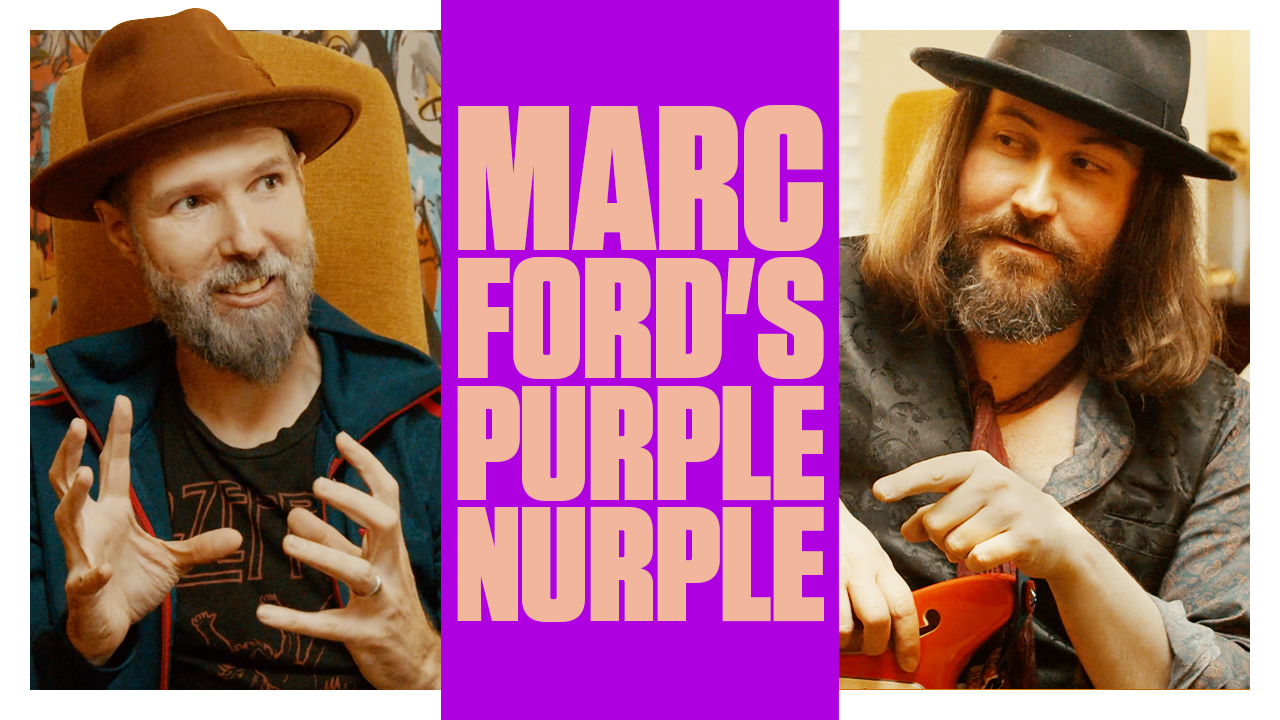
On this week’s Pedalpocalypse – the show where we talk to guitar players about the three effects pedals that mean the most to them – we talked to British blues guitarist and songwriter Jack J. Hutchinson.
Hutchinson has played with Blackberry Smoke, ZZ Top, Jeff Beck and more, garnering acclaim for his soulful blues rock. But effects pedals have never really been his thing.
"I've mainly been focused on guitars and amps," he says. "I've got lots of musician friends who're really into these obscure, boutique pedals. But the main thing for me has always been to retain the tone of the guitar and the amp.
"For years I've operated as a power trio, so part of what I've had to do is fill out that sound, whether through the bass player or using effects to make things sound a little bit thicker."
To that end, his first choice is the brilliantly named Purple Nurple by BMF Effects. It was a pedal that Hutchinson, a huge Black Crowes fan, first spotted in the pedalboard of former Crowes guitarist Marc Ford.
"I'll Google artists that I'm into and look at their rig, and try and decipher how they're getting these great tones," he says. "The Purple Nurple was a pedal that I'd seen on one of Marc's boards from about 12 years ago. And I was like, 'I've got to have one'.
"I'm more of a rhythmic player than a lead player and I need pedals that support that. I want something that's going to sound smooth but also be quite hard-hitting."
Pedal #2 is the Electro-Harmonix Micro POG. "I started using POG pedals as early as my first record," he says. "I was looking at ways of creating a thicker sound in a power trio scenario. We could add 15 guitar parts in the studio but how was I going to recreate that live? So the POG provided a thicker sound.
"I've probably used it on just about every heavy rock track that I've recorded over the last five or six years," he says. "It's had a lot of use."
Like many of us, Jack was admits to being "obsessed with solos for years, particularly when I was younger" but says that it was to the detriment of his songwriting.
The discovery of bands like Neil Young and Crazy Horse encouraged him to step away from the need for speed and think about the song. "I don't play solos the same way that I used to, which would be focused on technical proficiency. I write solos in the same way that I would write a vocal melody. Like: 'Does this serve the song?'
The change in Jack's playing came from a period in which he took four years out due to ill health and had to build his guitar playing back up from scratch.
"I was quite ill," he says. "I got this thing called reactive arthritis, a viral illness that causes your joints to freeze up. So for about nine months, I couldn't play guitar. My hands and wrists were swollen, so I couldn't actually play guitar."
When he got finally felt well enough to pick the guitar up again, "it felt like everything had been stripped away. I was no longer playing Joe Satriani stuff on my guitar, I was struggling to play Oasis. It was completely transformed. And that forced me to focus on my voice: I could still strum some chords and sing, so that really altered my mindset."
The illness lasted for nine months, but that turned into a four-year time-out from gigging. "I was embarrassed to go on stage," he says. "I was really nervous about getting up in front of people because I had no confidence in my playing."
For his first gig back, he went to an open mic night in Loughborough, in Leicestershire, England, where he played two songs. When he finished, a guy in the audience came over. "He said, 'I've got to tell you something, man. Your playing tonight was terrible.'"
He laughs. "And I thought, 'Maybe it was, but I'm back on stage and I haven't been able to do that for a long time'. I think I was a better guitarist 15 years ago, but I think I'm a better songwriter now."
But that doesn't mean he's not prone to a bit of a live freakout. His third pedal choice is the Mad Professor Deep Blue Delay pedal. "It's a pedal that I actually use quite sporadically," he says, "but it forms a key component of live shows – the moment where I wig out and it all goes psychedelic for 15 minutes.
The Deep Blue Delay, he says, gives him "these spacey, Grateful Dead sort of sounds" and also connects to his love of the Black Crowes.
"I was heavily influenced, as we've mentioned already, by the Black Crowes, and I remember seeing them I guess it was about 2006-2007 when they got back together with the line-up from The Southern Harmony and Musical Companion record.
"With tracks like Wiser Time, they would expand those songs, turning them from four minute songs into 20 minute psychedelic workouts. And that pedal – this tiny unit, which is actually very similar in scale and look to the Purple Nurple – it allows me to go off into this zone of thinking about, like, watching Twin Peaks, lost in the psychedelic sounds…"
Jack J. Hutchinson is on tour now. For more info visit his website.
Watch a new episode of Pedalpocalypse every Tuesday on Guitar World’s YouTube channel. Pedalpocalypse is produced in LA by Beaux Gris Gris & The Apocalypse guitarist Robin Davey and Growvision.







